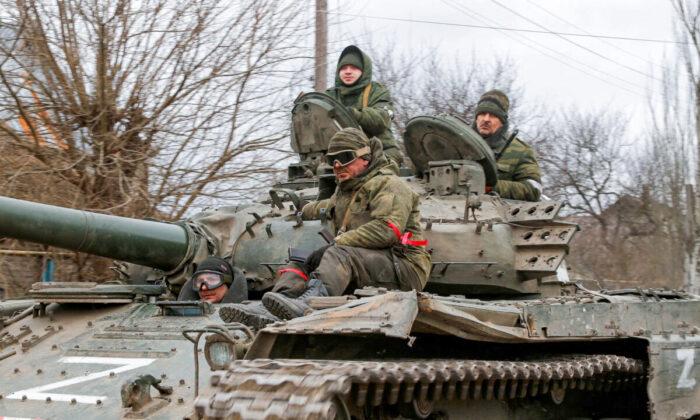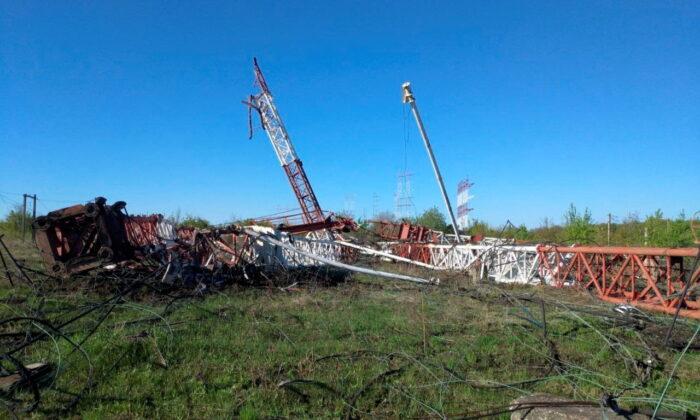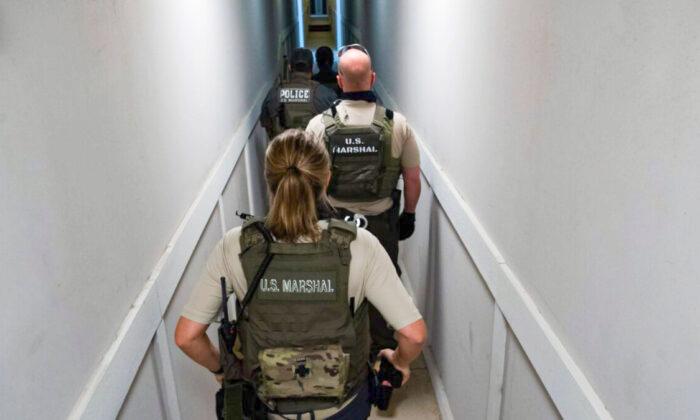Special envoys of China, Russia, and Pakistan have met and held talks with representatives of the Taliban terrorist group’s self-appointed government, Russia’s Foreign Ministry said on Wednesday.
The three special envoys during their visit to Kabul on Tuesday and Wednesday held talks with the Taliban-appointed acting prime minister Mohammad Hasan Akhund, foreign minister Amir Khan Mutaqi, finance minister, and other officials.
Russia’s Special Envoy to Afghanistan, Zamir Kabulov, Pakistan’s Special Representative for Afghanistan Mohammad Sadiq, and China’s Special Envoy to Afghanistan, Yue Xiaoyong, were invited to participate in talks by the Taliban, which seized control of Kabul on Aug. 15.
According to the foreign ministry’s statement, the officials discussed encouraging friendly relations with foreign countries and Afghanistan’s neighboring countries. They also touched upon having an inclusive government to ensure territorial integrity, unity of the country, human rights, and improving economic and social ties.
Chinese Foreign Ministry spokesman Zhao Lijian told reporters at a media briefing that the three special envoys also met with former president Hamid Karzai and Abdullah Abdullah, president of the Council for National Reconciliation under the former government.
Pakistan’s ambassador to Kabul, Mansoor Ahmed Khan, said on Twitter that the three countries pushed for an inclusive government in their meeting with Taliban officials.
Amid talks of inclusivity, and the terrorist group’s public promises of amnesty toward its opponents, the Taliban is coming under increasing fire following its move this month to ask female Kabul government workers to exit the workforce and remain at home, and to suspend secondary school education for girls in the country.
The decision to prevent most female city workers from returning to their jobs has largely been seen as another sign that the terrorist group is enforcing its harsh interpretation of Islam, despite initial promises by those involved in peace talks that they would form a representative government with other Afghan leaders that was more inclusive and respected human rights. In their previous rule in the 1990s, the Taliban had barred girls and women from schools, jobs, and public life.
The anti-Taliban National Resistance Front of Afghanistan (NRF) on Sept. 20 condemned the Taliban regime’s move to ban secondary schools for girls in the country, saying that it has always been separated in the country, and therefore, the question of segregating classrooms “should never arise in the first place.”
“The regime’s position as elaborated by its various spokesmen is but a reaffirmation of its long-held retrograde view that women should be consigned to household chores,” the NRF said. “Its utter ignorance of the age-old reality of secondary education system in the country betrays the alien nature of the regime.”
The U.N. hasn’t recognized the Taliban as the government of Afghanistan.
U.N. Secretary-General Antonio Guterres said last month that the Taliban’s desire for international recognition is the Security Council’s only leverage to press for an inclusive government and the respect for rights. Meanwhile, Linda Thomas-Greenfield, U.S. ambassador to the U.N., said that the U.N. is “not in a place yet where we are prepared to recognize the Taliban.”
Former U.S. ambassador to the U.N. Nikki Haley said on Sept. 22 that the Taliban shouldn’t be allowed to address the United Nations.
The regime has said it wants international recognition and financial help to rebuild the war-battered country. But the makeup of the new Taliban government poses a dilemma for the U.N. Several of the interim ministers are on the U.N.’s so-called blacklist of international terrorists and funders of terrorism.
Separately on Wednesday, Sen. Lindsey Graham (R-S.C.) and Rep. Mike Waltz (R-Fla.) held a phone call with Afghan resistance leader Ahmad Massoud.
Graham and Waltz said that after their conversation, it is “clear” that the Taliban regime is “deeply unpopular and resented” throughout the country.
“Their cabinet and forces are comprised of al-Qaeda and other listed terrorist groups, the statement said. “It is in America’s interest that the Afghan Taliban not be legitimized by the international community because they are, and have been, terrorists.”
They concluded their statement by calling on the Biden administration to resist any effort to recognize the Taliban as the government of Afghanistan and resist all calls to provide the regime representation at the U.N.





